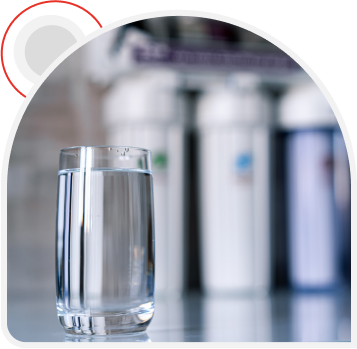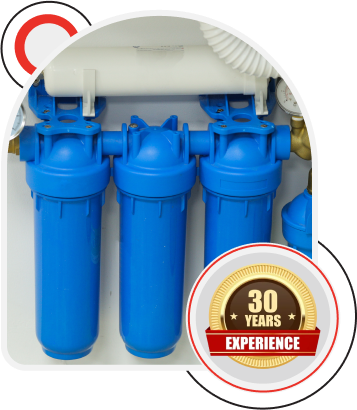Home water filter solutions in Enterprise, NV, can help remove sediment, chemicals, and other contaminants from the water you use for drinking, cooking, and bathing. Home water filtration systems can provide clean, safe water throughout your entire plumbing system, or you may choose a system designed just for drinking water. At Frontline Plumbing, our experts can help you select the best filtration solution for your needs and provide professional installation services.
Home Water Filter in Enterprise, NV
Call For Details

Enterprise Home Water Filter Options
A great first step in installing a water filtration system is conducting a water quality test. This allows us to identify the specific contaminants present in your water. From there, we can recommend the right home water filtration solution for your specific needs. Available filtration options include reverse osmosis systems, multi-stage filtration setups, and ion exchange filters.
- High concentrations of minerals
- Sediment
- Rust
- Chemicals
- Heavy metals
- Bacteria and viruses
Reverse osmosis systems force water through a semi-permeable membrane that traps contaminants and impurities. Different filters are often used in this system, including pre-filters for large particulates and carbon filtration to improve taste. Once water leaves the reverse osmosis filtration setup, it remains in a storage tank until you turn on a fixture. Reverse osmosis technology removes minerals, which is a small downside, since some people prefer to leave minerals in their water for health benefits. It also results in some water wastage.
For treating our area’s hard water, an ion exchange process can remove high concentrations of minerals from your water. Resin beads trap these minerals, replacing them with potassium or sodium ions. A regeneration cycle will run periodically to refresh your resin beads. This is a great option for supporting your health and well-being, but the ion exchange process can also protect your appliances and plumbing system.
If you have a standard multi-stage filtration system in your Enterprise home, you can choose what kind of filters you need. Most home water filter units come with a pre-filter, polishing filter, carbon filter, and sediment filters. You will need to change these filters periodically. Depending on the filter type and water usage, filters typically need replacement every six to 12 months.
Installing Home Water Filtration
Frontline Plumbing brings over 30 years of experience delivering home water filtration solutions and a full range of plumbing services to homeowners. We take pride in delivering outstanding customer satisfaction on every job. Want to hear what our customers have to say? You can browse our many positive reviews on our website, as well as on Yelp, Facebook, Google, and the Better Business Bureau.

Contact Frontline Plumbing today for home water filter solutions in Enterprise. We also offer expert services for water heaters, tankless water heaters, water softeners, and more.
©2026 Frontline Plumbing. All Rights Reserved. Privacy Policy. License: #0090908. Web Design and Internet Marketing by RYNO Strategic Solutions